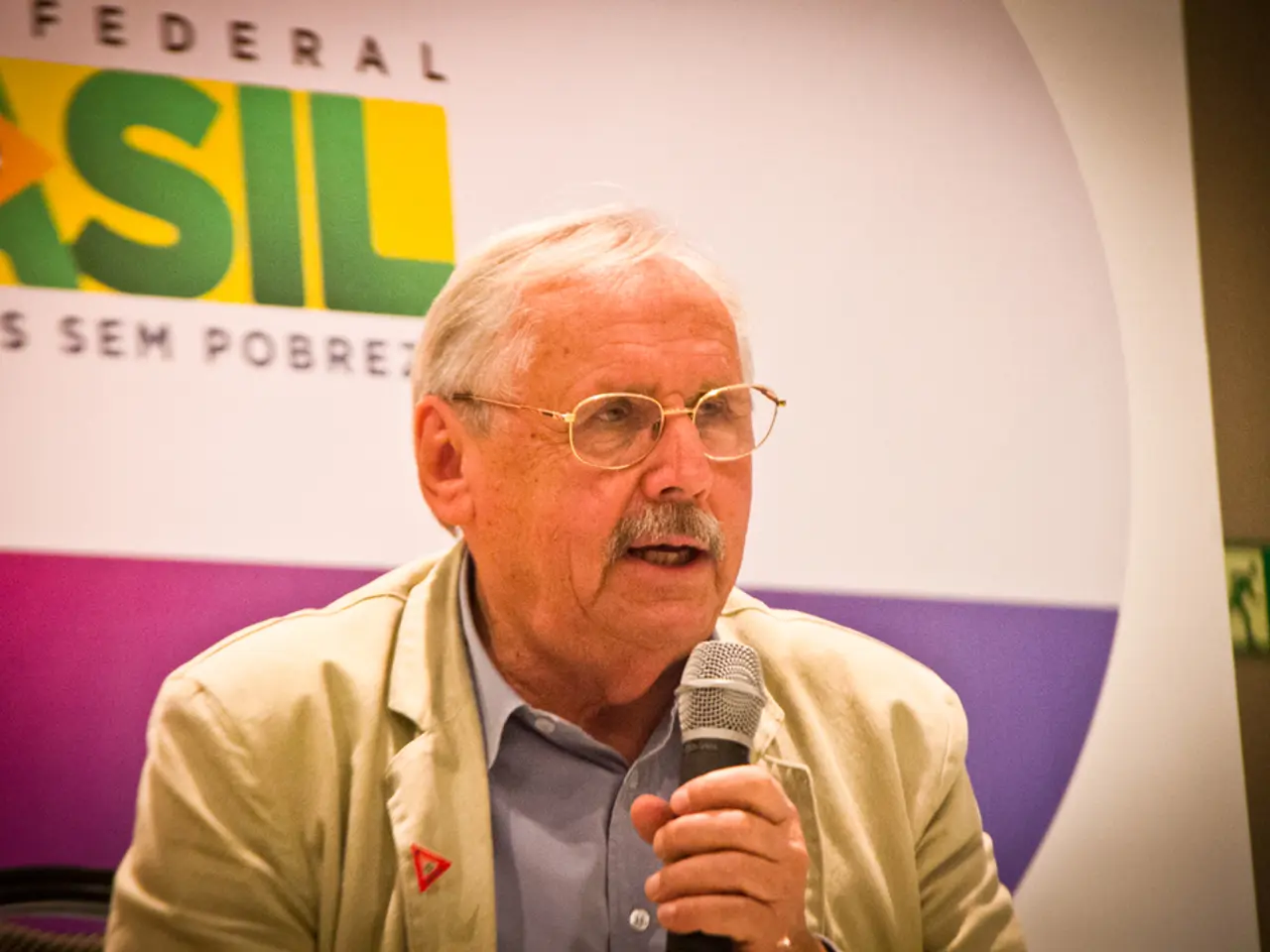Following the Alaska summit, President Trump of the United States abandones the proposal for a Ukraine ceasefire.
The latest developments in the peace talks between Ukraine and Russia have seen a shift in the dynamics, with a direct meeting between Presidents Zelensky and Putin not currently planned.
Russian Foreign Minister Sergey Lavrov emphasized that the agenda for such a meeting is "not ready at all" as of late August 2025. Despite ongoing diplomatic engagement, Russia is firm on its conditions for peace, centering on security guarantees that address Russia’s "legitimate concerns," particularly opposing Ukraine’s NATO membership and limiting Ukraine’s military capabilities.
In a significant move, former US President Donald Trump has promised to join Europe in providing security guarantees to Kyiv. Trump advocates for a full peace deal rather than a temporary ceasefire, signaling a shift towards a more Russia-aligned peace approach. However, Moscow remains skeptical of Western guarantees that ignore Russia’s demands, stating that any Western security framework must accommodate Russia’s interests to avoid being a "road to nowhere."
These dynamics imply complex implications for the transatlantic alliance. The US and European allies have been engaged in discussions following meetings in Washington, but Russia perceives these efforts as insincere or obstructive to peace. Russia insists on addressing what it calls the “root causes” of the conflict, including NATO expansion, which poses a direct challenge to the alliance’s policy and unity.
The uncertain progress and divergent positions suggest continued strain on transatlantic consensus, as the US attempts to balance support for Ukraine with potential security guarantees, while Russia demands a security order that fundamentally limits Western influence in Ukraine.
As the situation unfolds, it remains to be seen whether a meeting with Putin will be arranged. Zelensky, in anticipation of his Washington visit on Monday, stated that he will discuss the end of the killing and the end of the war with President Trump. If all goes well, a meeting with Putin may be on the horizon.
References: [1] BBC News, "Ukraine conflict: No direct Putin-Zelensky talks planned, says Lavrov," 24 August 2025, https://www.bbc.co.uk/news/world-europe-58762761 [2] Reuters, "Exclusive: Russia sets out terms for peace in Ukraine, demands NATO guarantees - sources," 25 August 2025, https://www.reuters.com/world/europe/exclusive-russia-sets-out-terms-peace-ukraine-demands-nato-guarantees-sources-2025-08-25/ [3] The Guardian, "Trump and Putin meet in Alaska: live updates," 1 September 2025, https://www.theguardian.com/us-news/live/2025/sep/01/trump-putin-alaska-summit-live-updates
- The ongoing diplomatic discourse regarding the peace talks between Ukraine and Russia involves multiple factors, including war-and-conflicts, politics, and general-news, as evidenced by the shift in positions, the concerned parties' debates over NATO membership and security guarantees, and the skepticism shown towards Western guarantees.
- Despite ongoing discussions within the transatlantic alliance about the crisis in Ukraine, Russian insistence on addressing the "root causes" of the conflict, such as NATO expansion, raises questions about the future of the alliance and the possible impact on its policy and unity, thereby making it a subject of continuous general-news coverage, politics, and ongoing war-and-conflicts debates.








